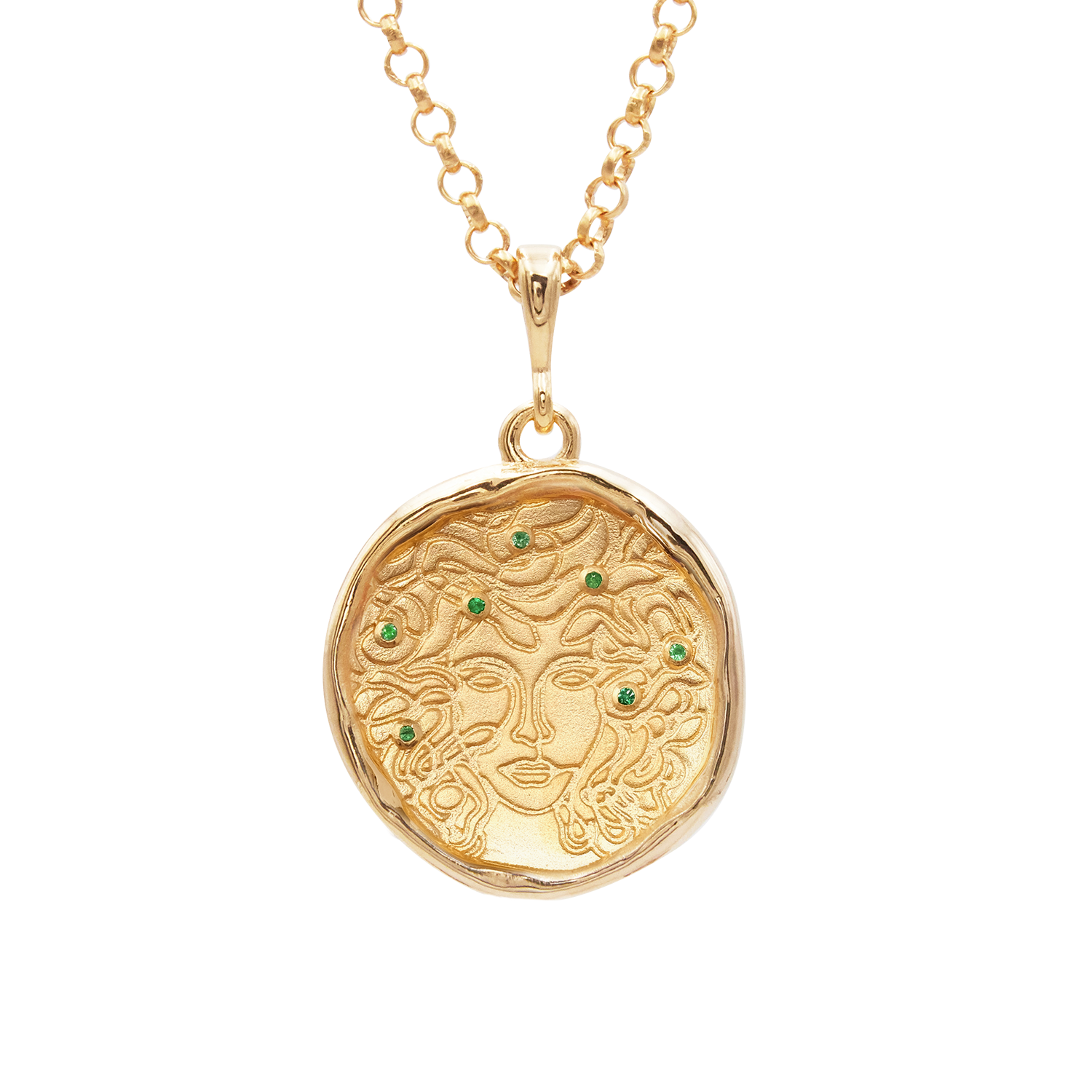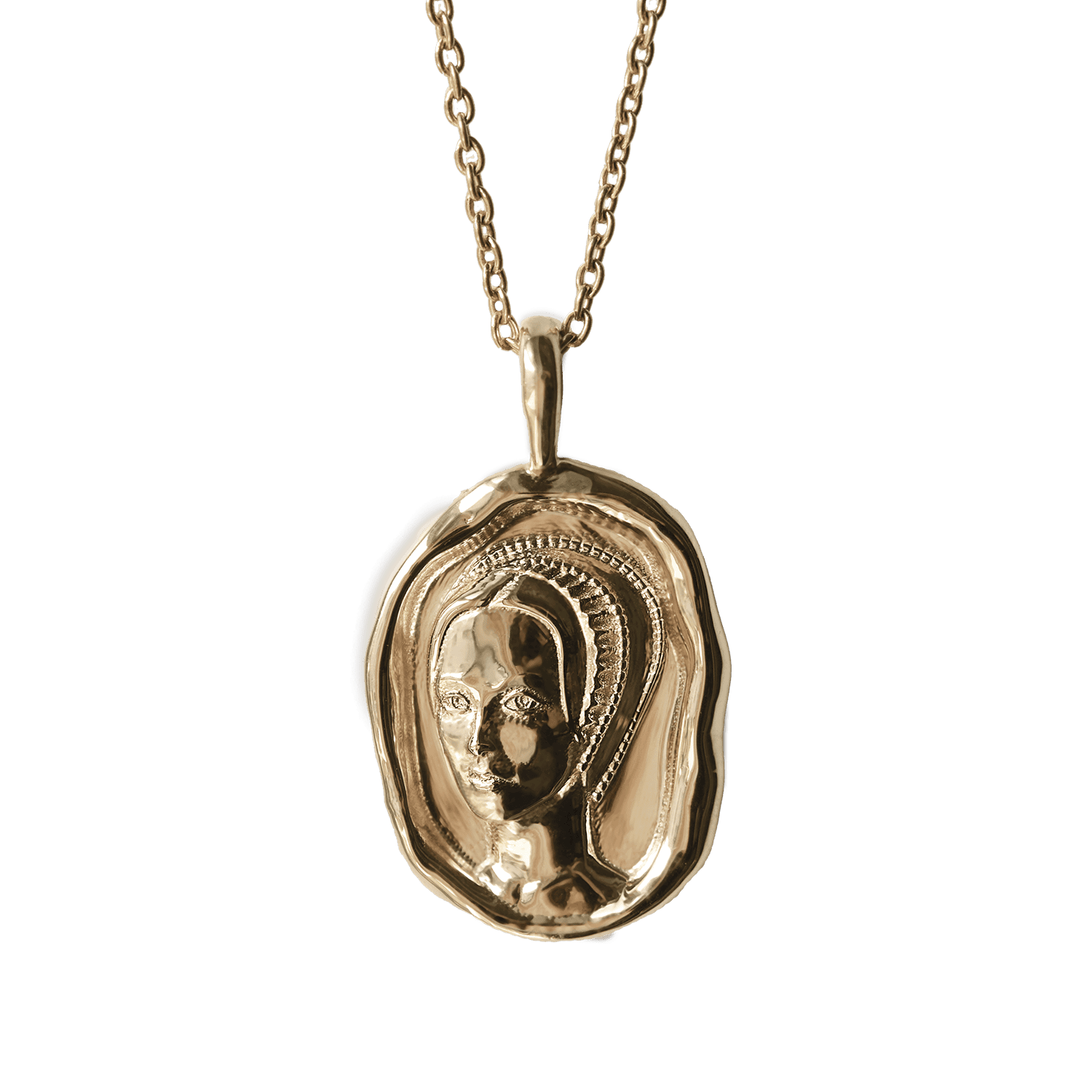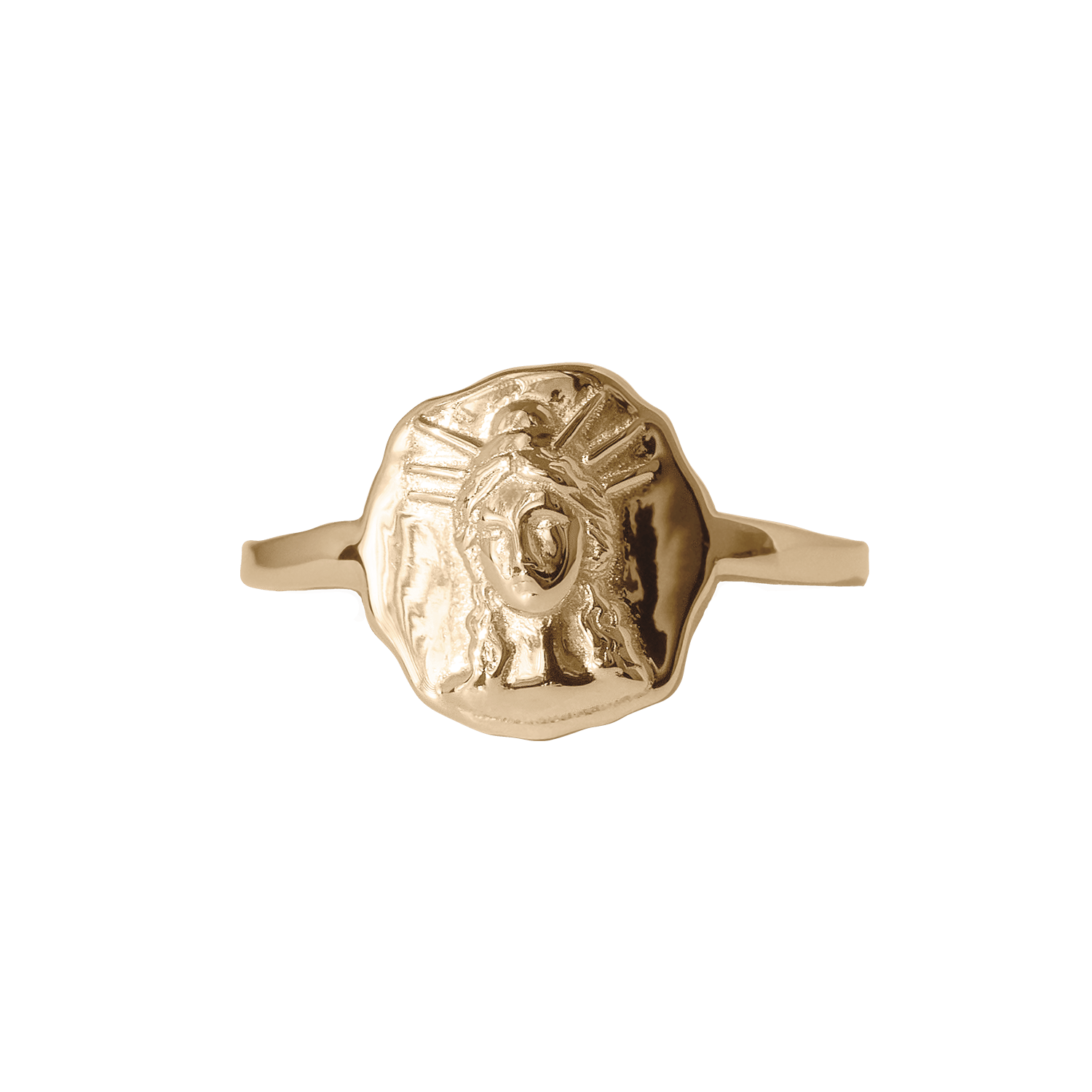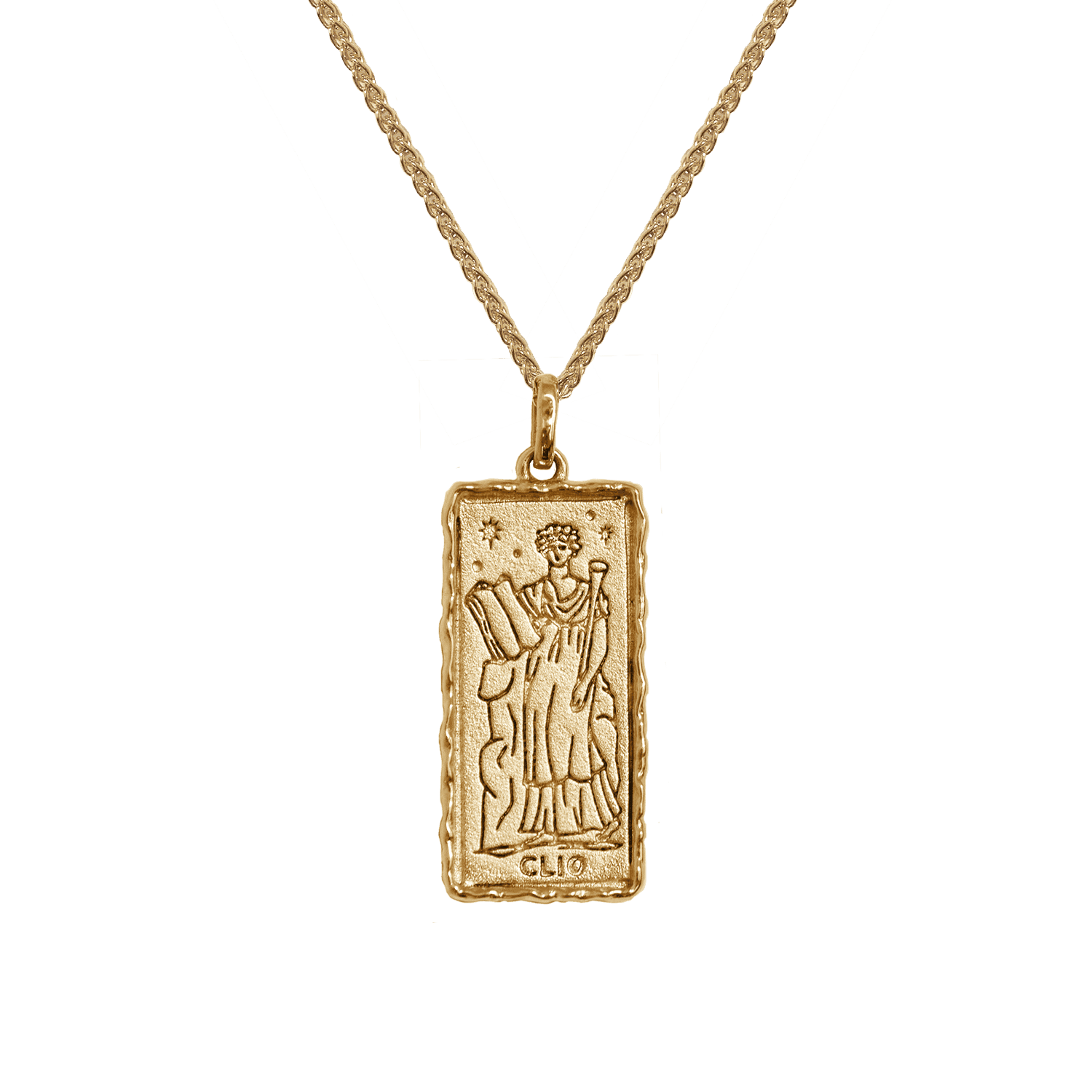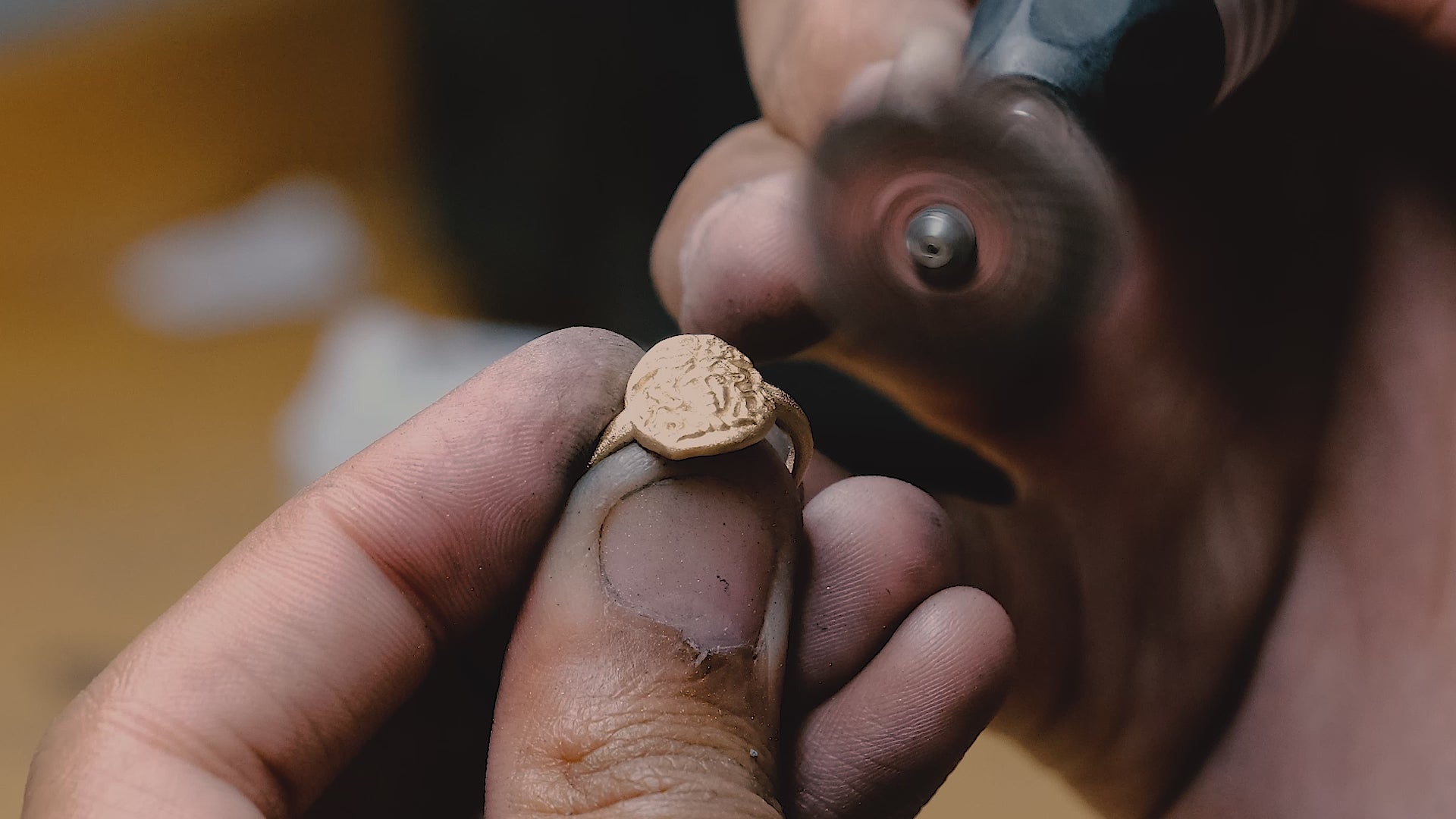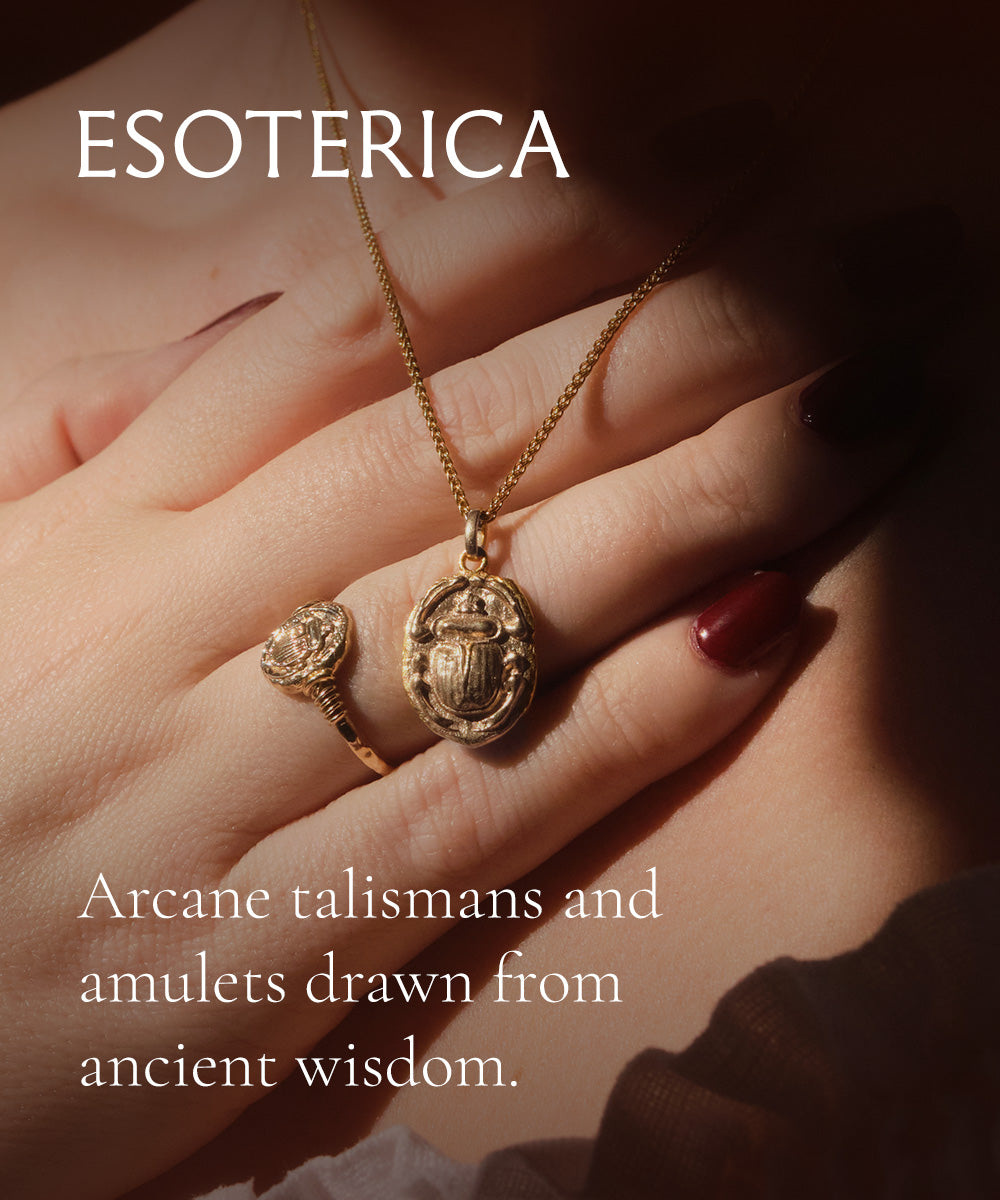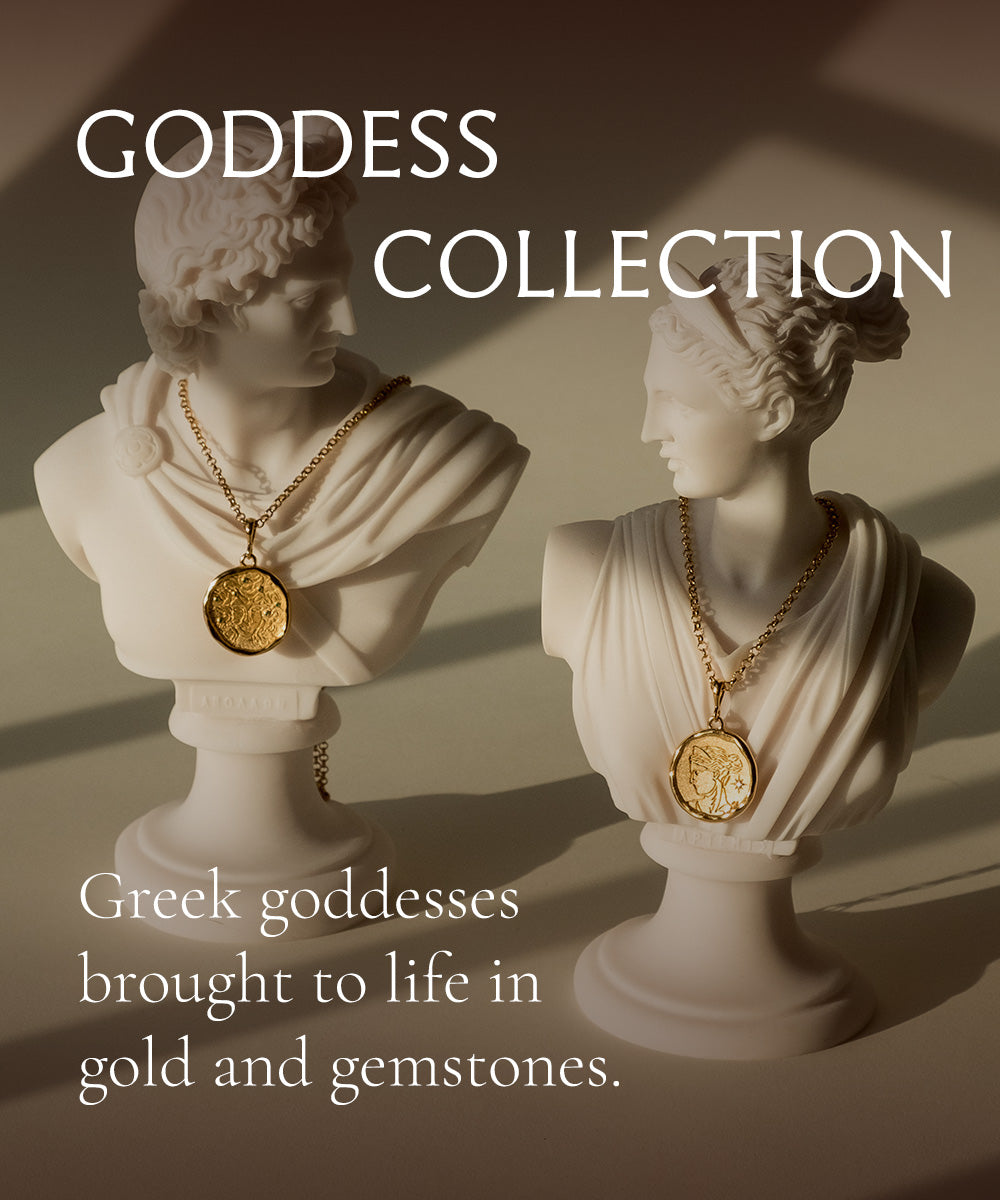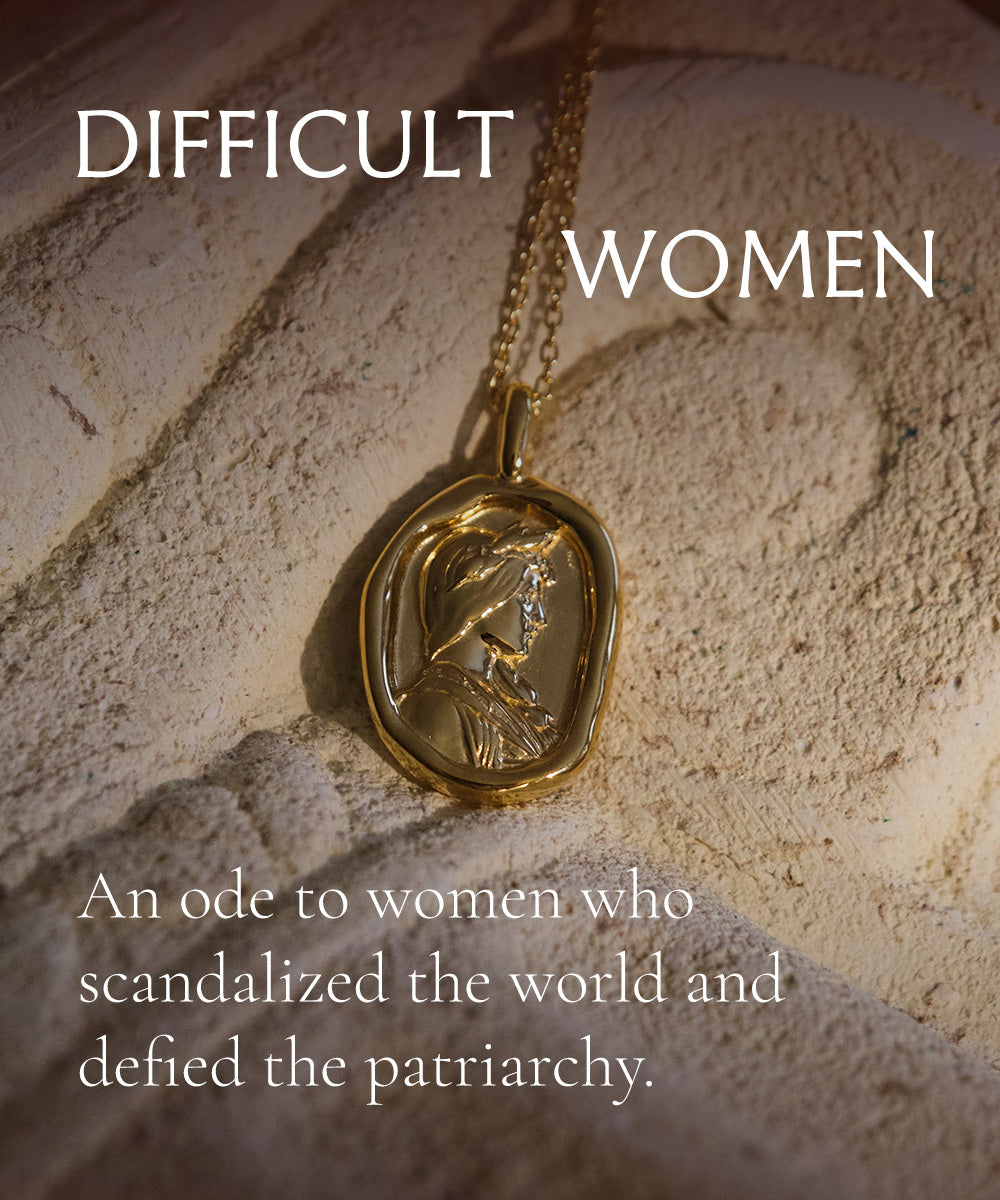

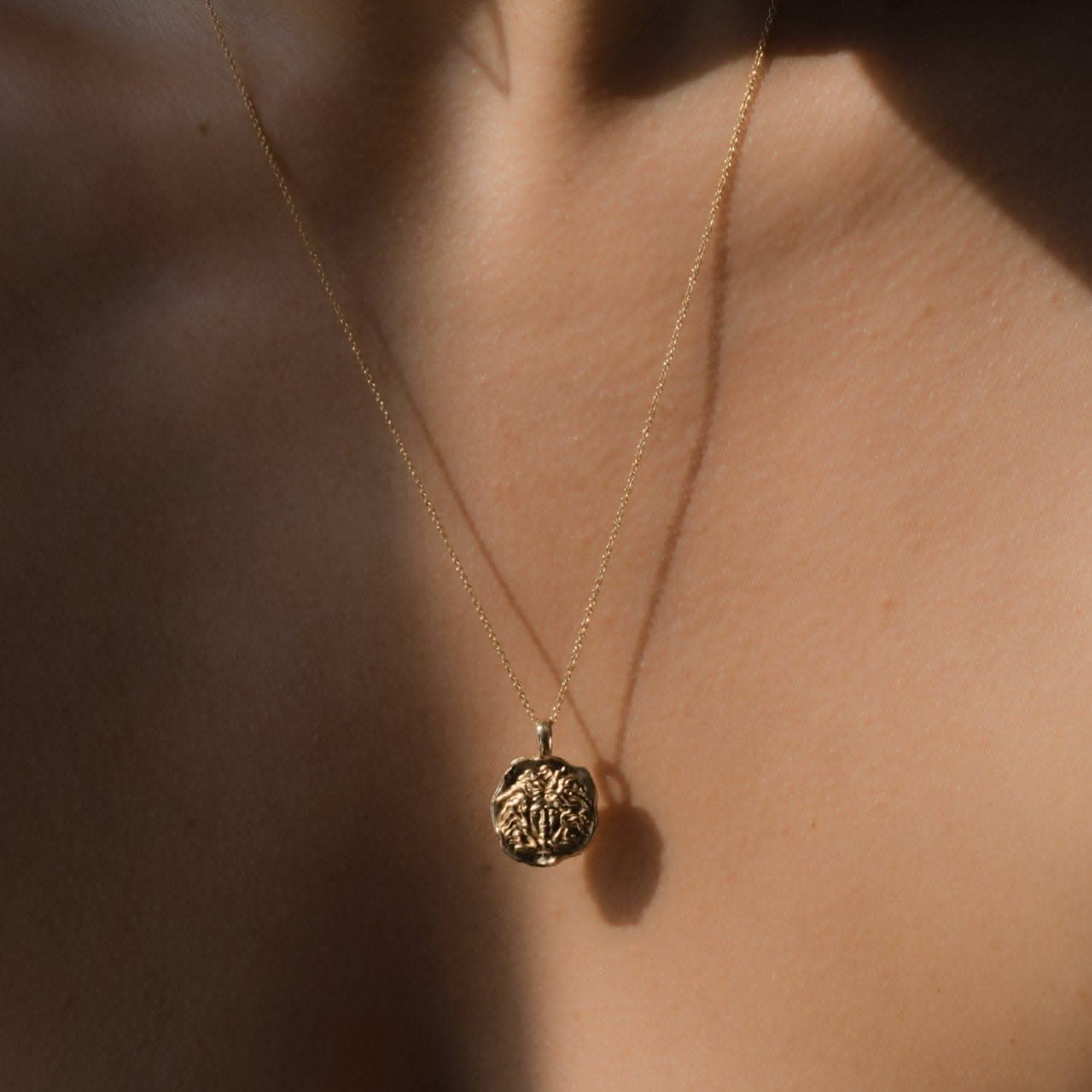


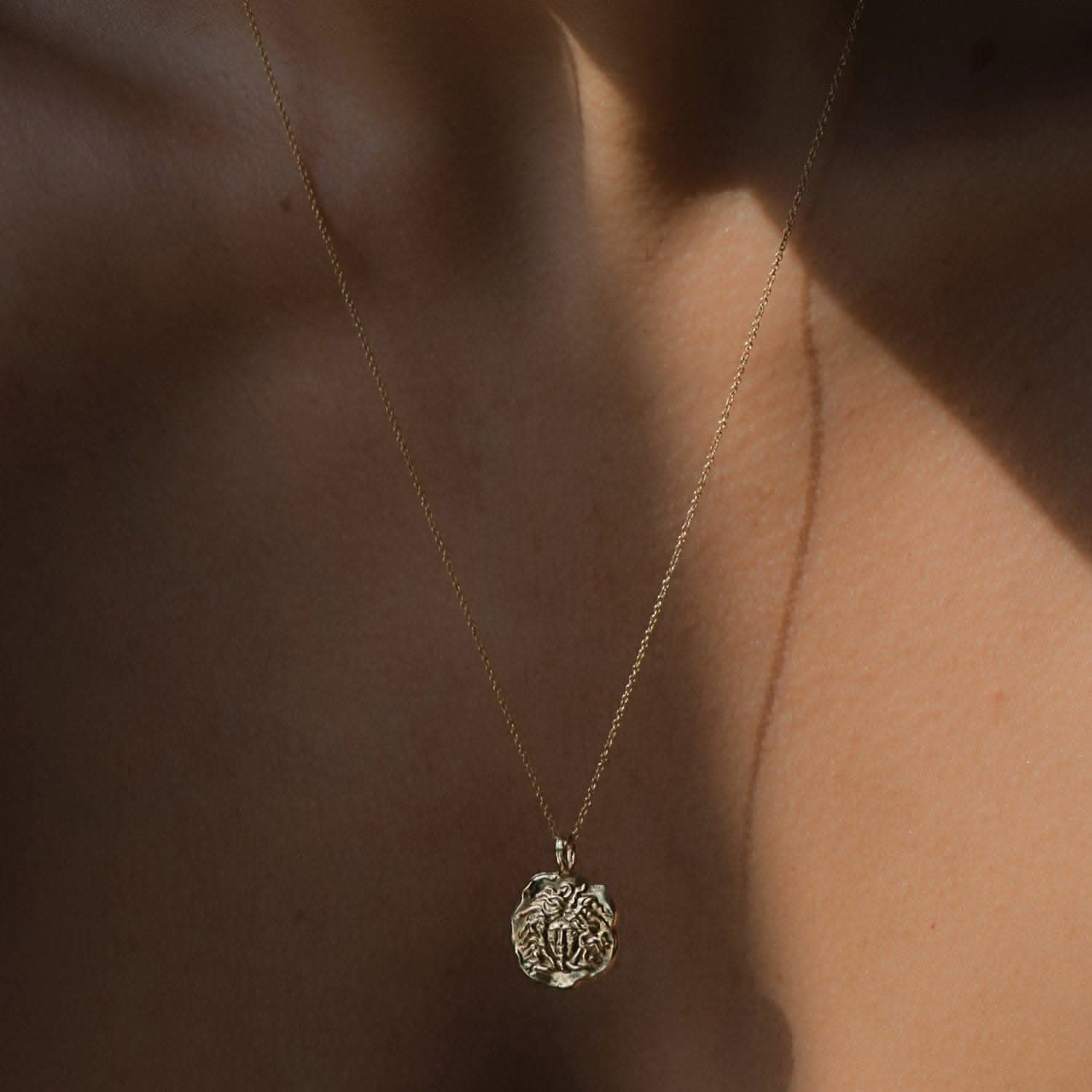
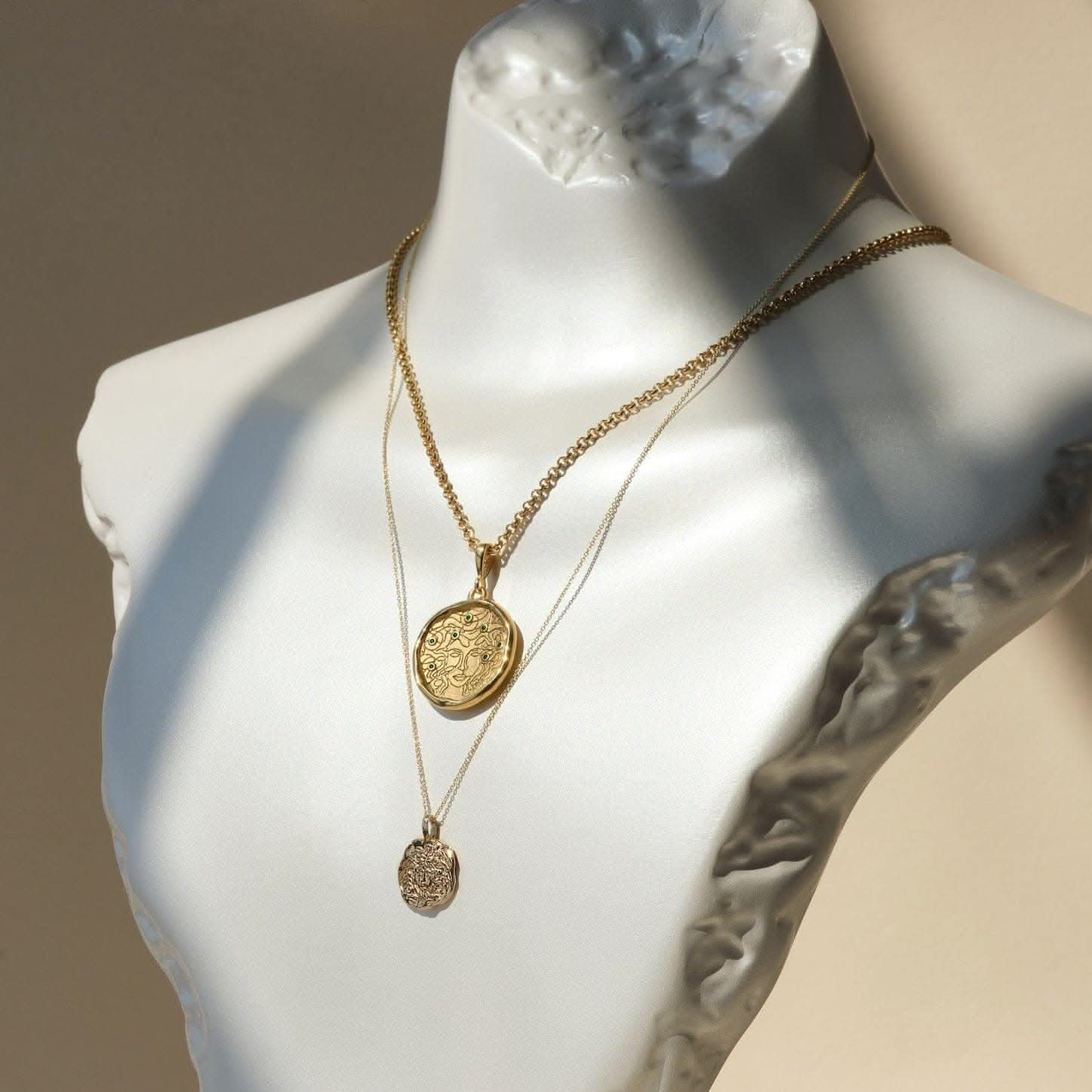



















Medusa Mini Medallion
Free global shipping
100% recycled solid gold or vermeil
2 year warranty
Fairly made, fairly priced
There are varying origin stories for Medusa, but the ancient poet, Ovid, tells us that she was once a beautiful mortal woman and a priestess of Athena. In the sacred temple of Athena, Medusa was raped, and the enraged goddess transformed Medusa into a Gorgon - a monster with snakes for hair.
Medusa would never be touched by a man again, for she could turn them to stone with only her gaze. But men are terrified by women who wield power, so it was not long before Perseus sought out Medusa to chop off her head, which was then used as a weapon.
Women who speak out against injustice are very often mockingly compared to Medusa. On the surface, it is disrespectful and belittling. Her femininity is used to undermine her and diminish the value of her words. But there is a deeper meaning in the comparison, and that is Medusa's decapitation, which says that women speaking must be silenced - by whatever means necessary.
But women have always heard Medusa’s voice. She has served as a symbol of protection (known as a Gorgoneion) in Greek culture for millennia, and more recently, as a universal symbol of power and feminine rage.
“You only have to look at the Medusa straight on to see her. And she's not deadly. She's beautiful and she's laughing.” -Hélène Cixous, Laugh of the Medusa.
This molten gold medallion brings Medusa to life in three dimensions, golden snakes seem to almost move as the light hits the syrupy metal. Around half the size of the original Medusa 7 Emerald Medallion, she is cast in 100% solid gold or 18k gold vermeil, and can be purchased with or without a chain.
Complete the look:
Product Details 🔍
Metal:
100% recycled solid yellow, white gold, or 18k gold vermeil
Pendant Dimensions:
15mm x 15mm (excluding bail)
2mm thick
Chain:
Gold vermeil medallion comes with 20 inch cable chain with lobster clasp
About Solid Gold ✨
Solid gold is the best option if you:
1. Want to wear your piece forever or pass it down as an heirloom. Solid gold will last for centuries without degrading.
2. Want to invest in jewelry as an asset rather than an accessory. Gold traditionally appreciates in value and can always be melted down and made into a new piece
Unlike many brands, our gold is never hollow - it is always 100% solid, cast using the lost wax method, meaning there is a lot more gold in each piece.
Our gold is 100% certified recycled and each piece is handcrafted here in New York.

About Gold Vermeil
Gold Vermeil, pronounced ver-may, is a french term for a style of gold plating that is regulated by the federal government. Unlike "gold plated" jewelry, vermeil must always be on a solid 925 sterling silver base - rather than brass - with at least 2.5 microns thickness of gold. This is 3 times thicker than normal gold plating.
This makes vermeil a longer lasting product than gold plated jewelry, as well as more valuable because it's composed entirely of precious metals.

When will my piece ship? 🚚
Vermeil: 2 business days
Solid Gold: 2 - 3 weeks
We keep a small inventory of solid gold pieces - please check just above the size/color selector to see if your piece is in stock.
If your solid gold piece is not in stock, please see above for the estimated timeframe to ship.
Medusa Mini Medallion
- Related products
- Recently viewed

FEATURED BLOG
How We Price Our Gold Jewelry
People are always curious about how jewelry companies price their pieces - how can that tiny little piece be worth $3000? I was one of those skeptical people until I founded...
